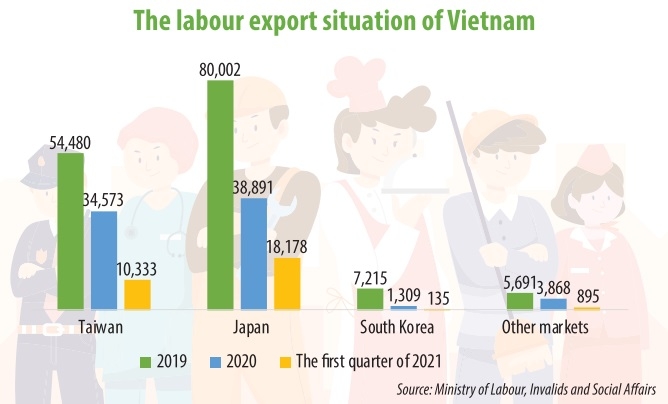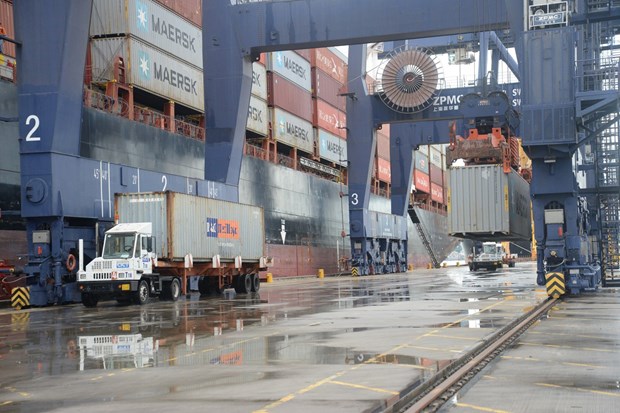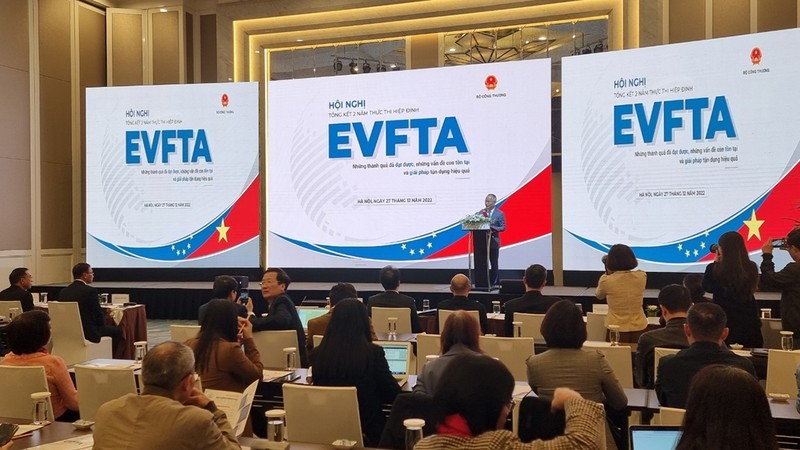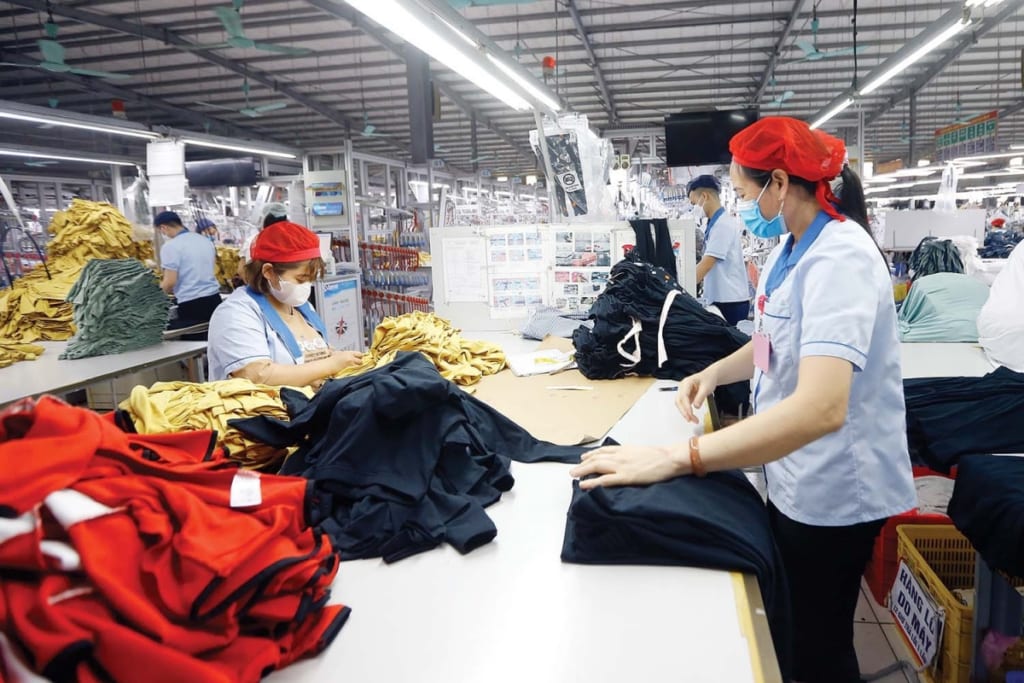Vietnam has become a leading country in the labor export industry, facilitating the overseas employment of its citizens in various countries worldwide. This thriving sector has not only significantly contributed to the Vietnamese economy but has also created numerous employment opportunities for its people. In this article, we will explore the historical development, success factors, impact, challenges, and future prospects of Vietnam’s labor export industry.
Introduction to Vietnam’s labor export industry
Vietnam’s labor export industry involves recruiting and deploying Vietnamese workers to foreign countries to meet labor demands in various sectors. Over the years, Vietnam has established itself as a reliable source of skilled and semi-skilled workers, attracting employers worldwide. The country has developed a robust system to facilitate the migration of its workforce and ensure their well-being overseas.
Historical background and development of labor export in Vietnam
Vietnam’s labor export industry has a rich history dating back to the 1980s when the country underwent economic reforms. Initially, labor export primarily focused on neighboring countries like China and Laos. However, as Vietnam’s economy continued to grow and global labor demand expanded, the scope of labor export widened to include countries in the Middle East, Southeast Asia, and even Europe.
Reasons for Vietnam’s success in labor export
Several factors have contributed to Vietnam’s success in the labor export industry. Firstly, Vietnam boasts a large and young population with a high percentage of skilled and trainable workers. This demographic advantage has allowed the country to meet the diverse labor demands of different countries and industries. Additionally, the Vietnamese government has implemented favorable policies, training programs, and partnerships with destination countries, facilitating the smooth flow of workers.
Types of jobs and industries for labor export in Vietnam
Vietnamese workers find employment in a wide range of industries overseas, including manufacturing, construction, healthcare, hospitality, agriculture, and information technology. The demand for Vietnamese workers is particularly high in sectors like electronics, textiles, and construction, where their skills and work ethic are highly regarded.
Benefits and challenges of labor export for Vietnam
Labor export has brought significant benefits to Vietnam. It has generated a substantial inflow of remittances, contributing to the country’s economic growth and development. Additionally, labor export has helped alleviate unemployment and underemployment, providing income opportunities for Vietnamese workers and their families. However, the industry also faces challenges, including ensuring worker welfare, combating illegal recruitment practices, and addressing cultural and language barriers.
Impact of labor export on the Vietnamese economy
The labor export industry has played a crucial role in Vietnam’s economic development. The remittances sent by Vietnamese workers abroad have become an important source of foreign currency inflow, contributing to the country’s balance of payments. Moreover, these remittances have fueled domestic consumption and investment, stimulating economic growth across various sectors.
Government policies and regulations on labor export
The Vietnamese government has enacted policies and regulations to govern the labor export industry and safeguard the interests of its workers. These regulations include licensing requirements for recruitment agencies, labor contracts, pre-departure training programs, and mechanisms for addressing disputes and grievances. The government collaborates with international organizations and destination countries to ensure the welfare and protection of Vietnamese workers.
Training and preparation for Vietnamese workers going abroad
To prepare Vietnamese workers for employment overseas, the government and private sector collaborate to provide comprehensive training programs. These programs focus on language proficiency, technical skills, cultural orientation, and awareness of legal rights. By equipping workers with the necessary knowledge and skills, Vietnam aims to enhance the employability and competitiveness of its labor force in the global market.
Support systems for Vietnamese workers overseas
Vietnamese workers deployed abroad receive support through various channels. Overseas Vietnamese communities, non-governmental organizations, and Vietnamese embassies and consulates play a crucial role in providing assistance, guidance, and protection to workers in their host countries. These support systems help workers navigate unfamiliar environments, access healthcare, and resolve any issues they may encounter.
Protecting the rights and welfare of Vietnamese workers abroad
Ensuring the rights and welfare of Vietnamese workers abroad is a priority for the Vietnamese government. It actively participates in international agreements and conventions that promote the protection of migrant workers’ rights. The government also collaborates with destination countries to establish mechanisms for addressing labor-related issues and providing legal protection to workers.
Success stories of Vietnamese workers in foreign countries
Vietnamese workers have achieved remarkable success in foreign countries, both individually and collectively. Many have excelled in their chosen fields, earning recognition for their skills and dedication. These success stories not only inspire future generations of workers but also enhance the reputation of Vietnamese labor abroad.
Challenges and risks faced by Vietnamese workers abroad
While success stories exist, Vietnamese workers also face various challenges and risks when working overseas. These challenges include cultural differences, language barriers, exploitation, discrimination, and unsafe working conditions. Addressing these challenges requires concerted efforts from the Vietnamese government, recruitment agencies, and destination countries to ensure the protection and well-being of Vietnamese workers.
Efforts to improve the labor export industry in Vietnam
Vietnam continues to make efforts to improve its labor export industry. These efforts include strengthening regulations, enhancing training programs, promoting ethical recruitment practices, and expanding the network of destination countries. By addressing existing challenges and improving the overall system, Vietnam aims to maintain its position as a reliable and responsible provider of labor in the global market.
Future prospects and opportunities for Vietnam’s labor export
The future looks promising for Vietnam’s labor export industry. As the global demand for skilled workers continues to rise, Vietnam can capitalize on its demographic advantage and its ability to produce a well-trained workforce. By adapting to emerging market trends, exploring new industries, and diversifying its labor export destinations, Vietnam can seize new opportunities and further enhance its economic growth.
Conclusion
Vietnam’s labor export industry has been instrumental in driving economic growth, reducing unemployment, and providing opportunities for Vietnamese workers. Through favorable policies, comprehensive training, and collaboration with destination countries, Vietnam has established itself as a trusted source of skilled and semi-skilled labor. While challenges exist, the government’s commitment to worker welfare, along with ongoing improvements in regulations and support systems, positions Vietnam for a prosperous future in the labor export industry.
Frequently Asked Questions (FAQs)
- How does Vietnam benefit from labor export? Vietnam benefits from labor export through remittances, reduced unemployment, and economic growth.
- What are the main industries for labor export in Vietnam? Vietnamese workers are employed in industries such as manufacturing, construction, healthcare, hospitality, and information technology.
- How does Vietnam protect the rights of its workers abroad? Vietnam has regulations, training programs, and collaborations with destination countries to protect the rights of its workers abroad.
- What are the challenges faced by Vietnamese workers overseas? Vietnamese workers face challenges such as cultural differences, language barriers, exploitation, and unsafe working conditions.
- What does the future hold for Vietnam’s labor export industry? The future is promising, with opportunities for Vietnam to capitalize on its skilled workforce and expand its labor export destinations.
Follow our channel for more updated new on Vietnamese labour market at LabourLinkVN




